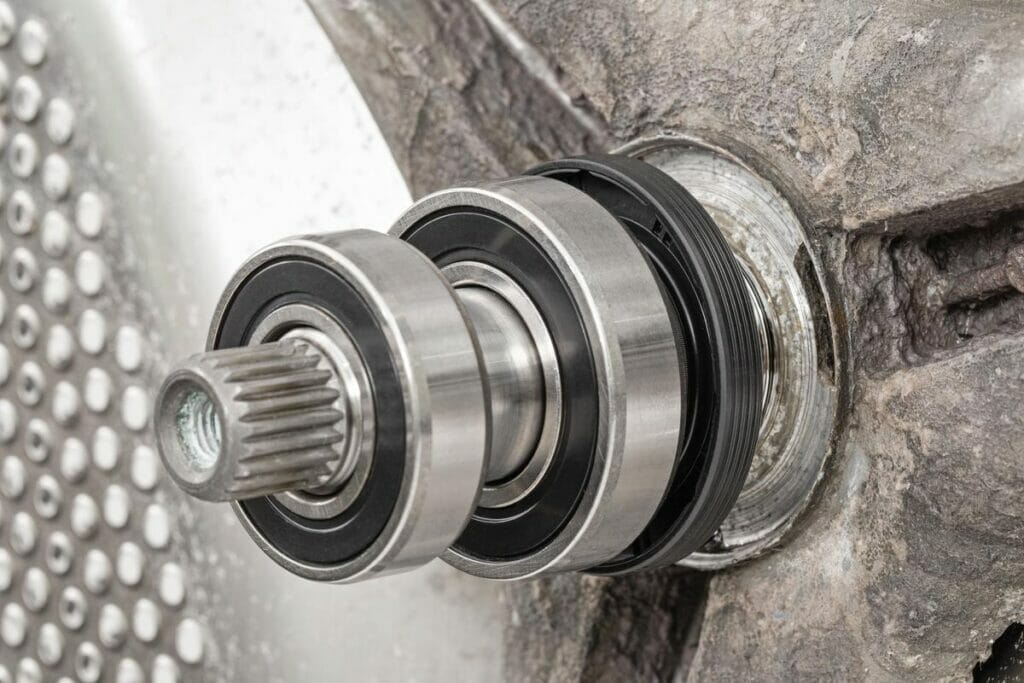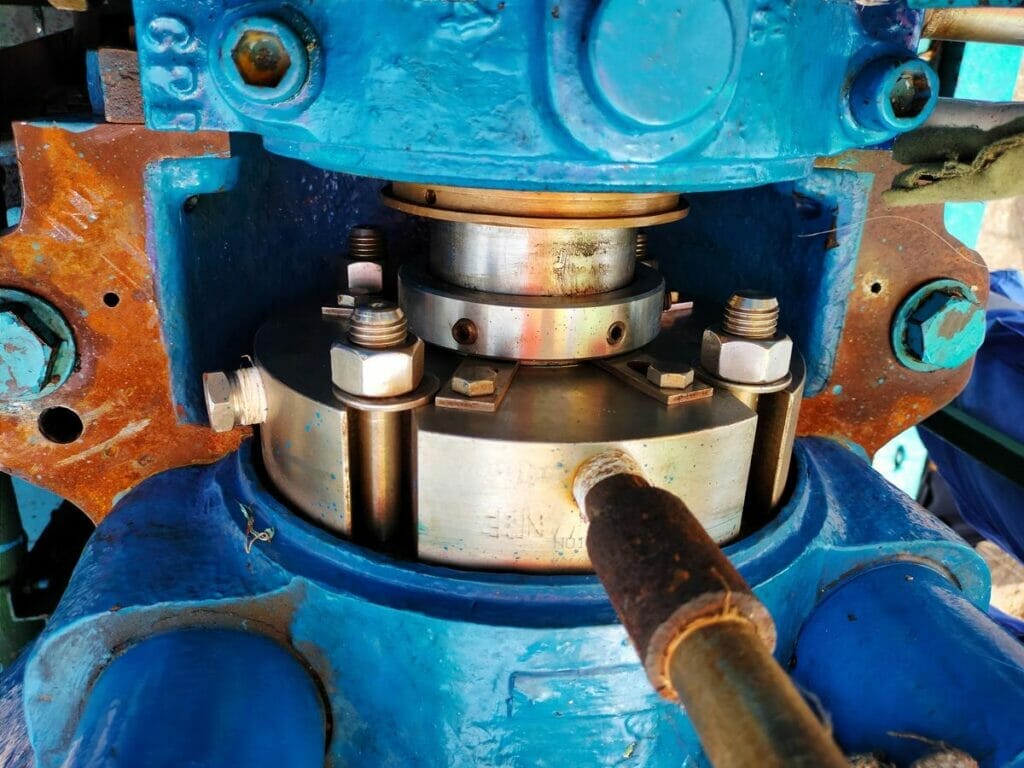Are you struggling to understand shaft seals and their importance?
Shaft seals play a crucial role in preventing leaks and maintaining the efficiency of machinery.
In this comprehensive guide, we will break down the different types of shaft seals, their applications, and how to choose the right one for your needs.

What Are Shaft Seals
Shaft seals are critical components in mechanical systems designed to prevent fluid leakage. They are used in a wide range of applications, including pumps, motors, and gearboxes. The primary function of a shaft seal is to maintain a seal between a rotating shaft and a stationary component.
How Shaft Seals Work
Shaft seals play a crucial role in preventing fluid leakage and contamination in mechanical systems. They maintain a barrier between moving and stationary components. The primary function of a shaft seal is to retain lubrication fluids while excluding environmental contaminants.
Basic Design and Operation
Shaft seals consist of several components. The sealing edge makes direct contact with the rotating shaft. This edge is often supported by a garter spring, which maintains pressure against the shaft. The outer diameter of the seal fits tightly within a stationary housing, ensuring static sealing.
Dynamic Sealing Interface
The dynamic sealing interface is where the shaft seal interacts with the rotating shaft. This interface must handle various operating conditions, such as rotational speeds and shaft deflections. Effective sealing depends on maintaining a proper film of lubricant between the seal and the shaft. This film reduces friction and prevents excessive wear.

Types of Shaft Seals
Lip Seals
Lip seals, also known as Rotary Shaft Seals or Radial Shaft Seals, are a common type of shaft seal. They consist of a flexible lip that maintains direct contact with the rotating shaft. The primary function of lip seals is to prevent fluid leakage and ingress of contaminants.
These seals often include a garter spring to ensure a tight fit around the shaft diameter. Lip seals are suitable for a wide range of applications, including oil seals and hydraulic fluid sealing. Common materials for lip seals include rubber and advanced materials for harsh environments.
Mechanical Seals
Mechanical seals, or Mechanical Face Seals, are used in high-pressure and high-speed applications. They consist of two flat surfaces: one stationary and one rotating. These surfaces create a dynamic sealing interface to prevent leakage.
Mechanical seals are ideal for demanding applications such as centrifugal pumps and boiler feed pumps. They are designed to handle a wide variety of operating conditions, including high pressures and shaft deflections. Proper functioning relies on effective lubrication fluids and robust design to minimize seal wear.
Labyrinth Seals
Labyrinth seals are a type of non-contact seal. They use a series of grooves and ridges to create a complex path for fluid leakage. This design reduces the flow of fluids and contaminants through the seal.
Labyrinth seals are suitable for high-speed applications where direct contact would cause excessive wear. They are commonly used in environments where minimal leakage is acceptable and where operating conditions involve high rotational speeds.
Packing Seals
Packing seals, also known as packing material seals, are used in a wide range of industrial applications. They consist of a packing material that is compressed around the shaft to create a seal.
These seals are often used in pump shafts and mechanical systems where a flexible and adjustable seal is needed. Packing seals are effective in environments with varying pressures and temperatures. They are commonly found in applications like cement pump cartridges and feed water pumps.
How to Choose the Right Shaft Seal
Operating Conditions
Identify the operating conditions of the application. Consider factors such as temperature, pressure, and rotational speeds. High-pressure applications may require mechanical seals, while high-speed applications might benefit from lip seals or radial shaft seals.
Shaft Diameter and Housing
Measure the shaft diameter and the outer diameter of the housing. The correct fit is essential for effective sealing. Ensure that the shaft seal housing accommodates the chosen seal type, whether it’s a lip seal, mechanical seal, or labyrinth seal.
Sealing Environment
Evaluate the sealing environment. For harsh environments with abrasive particles, a robust design like a mechanical face seal may be necessary. In cleaner environments, a simpler design like a rubber V seal or a radial lip seal may suffice.
Type of Fluid
Consider the type of fluid being sealed. Different fluids, such as hydraulic fluid, oil, or water, have specific requirements. For instance, rotary shaft oil seals are ideal for oil applications, while PTFE slipper seal designs may be better for chemical resistance.
Material Compatibility
Select materials compatible with the fluid and operating conditions. Common materials include stainless steel for the shaft and rubber for the seal. Advanced materials like PTFE or other plastic materials can be used for demanding applications.
FAQs
How long do shaft seals last?
Shaft seals typically last between 5,000 to 20,000 hours of operation. The lifespan depends on factors such as operating conditions, maintenance, and seal material. Regular inspection and replacement when needed can help extend seal life.
How do I know if my shaft seal is bad?
Signs of a bad shaft seal include leakage, visible damage, and excessive wear. Leakage is the most common indicator. Inspect seals regularly for cracks, hardening, or deterioration. Excessive wear on the shaft also suggests seal failure.
What is the best shaft seal?
The best shaft seal depends on the application and operating conditions. Factors to consider include temperature, pressure, speed, and media compatibility. Common materials are nitrile, silicone, and Viton. Consult with a seal manufacturer for specific recommendations.
In Conclusion
In summary, shaft seals are essential components that prevent leakage and ensure the efficiency of various mechanical systems.
For more detailed insights and technical specifications, explore our full range of resources. Contact us today to find the perfect shaft seal solution for your needs.


